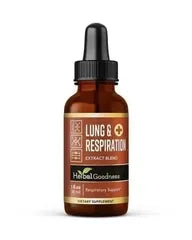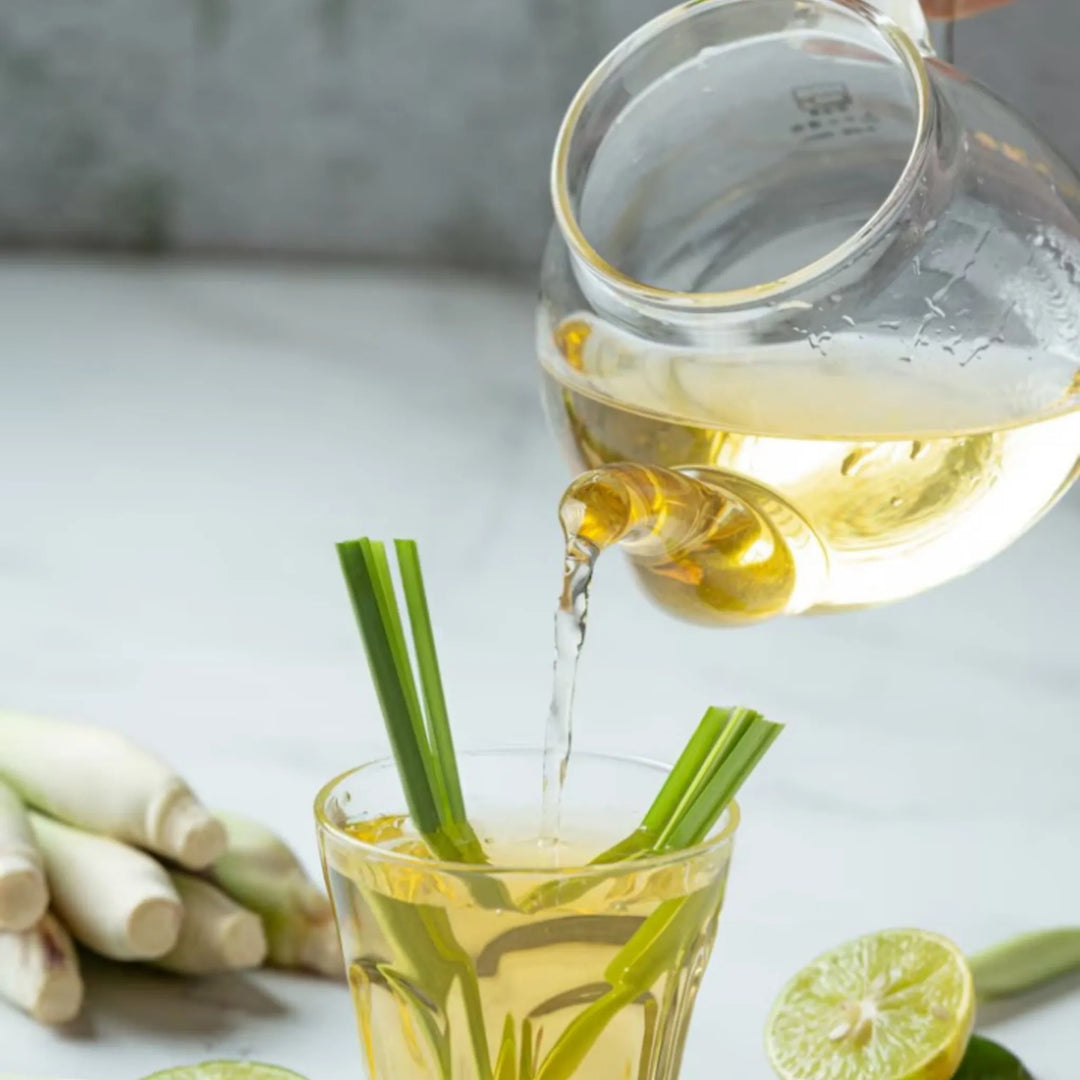Support Lung and Respiratory Health with Echinacea and Black Cumin seed | Herbal Goodness
Lungs are vital to filling our bodies with life. But oftentimes the wellbeing of our organs, especially one that plays a crucial yet backstage role, is often downplayed. The Lung is not an attention seeker, however, its function affects our bodies from a holistic aspect down to even the foods we crave. Research shows that taking shallow sips of air rather than deep ones can make you feel more stressed and less focused, and crank up your allergies. It can even cause junk food cravings.¹ The health of the lungs is important in maintaining overall health and wellness. Although the lungs are self-cleaning organs, exposure to harsh conditions may slow that process down considerably and put you in harm’s way.
Changes in the weather and seasons, as well as exposure to environmental pollutants, can make the lungs inflamed causing difficulty in breathing. Mucus gathers in the lungs to catch microbes and pathogens, which contributes to this feeling of heaviness. Toxins from cigarette smoke or air pollution that enter the lungs can affect the whole body. These toxins eventually become trapped inside mucus. People who have damaged lungs may have a harder time than others clearing mucus from their system.² Good respiratory health depends on whether or not the body effectively removes mucus from the lungs and airways.
The Respiratory Process
The average person inhales and exhales about 25,000 times per day, a mostly involuntary action. The process of respiration is an essential part of bodily functions. That's because your respiratory system touches all 10 of your body's other systems. It brings them the oxygen they need to function and expels the carbon dioxide they produce. To start this cycle, your brain sends a signal to the diaphragm, an umbrella-shaped muscle under your lungs, telling it to pull downward. That sucks air into your nose and through your trachea and the two bronchial tubes of the lungs, which branch out into tiny air sacs called alveoli. There, red blood cells grab the oxygen and ferry it around your body, where it's used to generate energy for all sorts of vital processes. The red blood cells then take the carbon dioxide "trash" back to the alveoli, from which it whooshes out as the diaphragm relaxes.
Taking herbs and superfoods for Lung support can boost your respiratory health considerably empowering you to face whatever respiratory challenges tossed your way. These superfoods and herbs provide a natural, plant-based option to help your body maintain healthy lung and sinus function and to support a strong respiratory system. Let’s look at two at the top of the list reviewed by this article.
Benefits of Echinacea for lung and respiratory support
Echinacea is a genus of herbaceous flowering plants in the daisy family. It has ten species, which are commonly called coneflowers. But only three are used in herbal supplements — Echinacea purpurea, Echinacea angustifolia, and Echinacea pallida. Both the plant’s upperparts and roots are used in tablets, tinctures, extracts, and teas.
They are found only in eastern and central North America, where they grow in moist to dry prairies and open wooded areas. They have large, showy heads of composite flowers, blooming in summer. The generic name is derived from the Greek word, meaning "sea urchin", due to the spiny central disk. These flowering plants and their parts have different uses. Some species are cultivated in gardens for their showy flowers. Echinacea purpurea is used in traditional health practices. Echinacea is the name of a group of flowering plants in the daisy family.
Echinacea plants contain an impressive variety of active compounds, such as caffeic acid, alkamides, phenolic acids, rosmarinic acid, polyacetylenes, and many more.³
Echinacea plants contain a rich blend of compounds such as phenols which control the range of activity of certain enzymes and cell receptors as well as limit ultraviolet radiation damage. Echinacea plants also contain beneficial antioxidants which support the immune system in so many ways providing support against respiratory concerns.⁴ Antioxidants are molecules that help defend your cells against oxidative stress, improving heart health and organ functions. Some of these antioxidants are flavonoids, cichoric acid, and rosmarinic acid. These antioxidants levels appear to be higher in extracts from the fruit and flowers of the plants, compared to other parts, such as the leaves and root.
In addition, echinacea plants contain compounds called alkamides, which can further enhance antioxidant activity. Alkamides can renew worn-out antioxidants and help antioxidants better reach molecules that are prone to oxidative stress.³ Commercially available echinacea products come in many forms including tablets, juice, and tea
What Is Echinacea Tea?
Echinacea tea is an herbal drink most commonly made from the Echinacea purpurea plant. Other varieties, including Echinacea angustifolia and Echinacea pallida, may also be used as an ingredient in some teas and extracts. Usually, the purple, cone-shaped flower of the plant is dried or cut fresh to make tea, but echinacea roots and leaves may also be used.
The taste of echinacea tea is often described as tongue-tingling. Some herbal product makers regard this quality as evidence of the herb's effectiveness. Echinacea is commonly combined with mint or with other ingredients such as lemongrass to make a more pleasant-tasting tea.
Benefits of Black Cumin Seed for lung and respiratory support
Nigella sativa (black caraway, also known as black cumin, nigella, or kalanji) is an annual flowering plant in the family Ranunculaceae, native to eastern Europe (Bulgaria, Cyprus, and Romania) and western Asia (Turkey, Iran, and Iraq), but naturalized over a much wider area, including parts of Europe, northern Africa and east to Myanmar.⁴
This shrub also produces fruit with tiny black seeds. Black Seed Oil is made from the seeds of the Nigella sativa flower. It has been used for thousands of years as a way to support lung, sinus, and respiratory health.
For over 2000 years, black seed has been incorporated into health and wellness practices with evidence uncovered in the tomb of King Tut; an ancient Egyptian Pharaoh who was the last of his royal family to rule during the end of the 18th Dynasty. Ayurvedic tradition makes use of cold-pressed Black Seed Oil because the process preserves the plant’s natural chemical profile and balance, providing the full spectrum of constituents, while at the same time providing all of the seed’s health benefits.⁵
Related: Tasty Echinacea Tea Recipes | Herbal Goodness
In particular, the black seed oil is rich in thymoquinone, which has potent antioxidants and anti-swelling effects, boosting organ functions and heart health. Thymoquinone also helps in relaxing muscles in the airway making breathing easier, thus preventing situations where the lining of your airways swell and the muscles constrict causing difficulty breathing. One study in adults found they could breathe easier and had boost respiratory support after consuming black seed capsules for about 4 weeks.⁴ Black cumin seeds are made into capsules, extracts, spices, and teas for consumption. Herbal Goodness comes through with a healthy brand of natural, organic, herbal black cumin seed capsules, made under the most hygienic conditions, to boost your respiratory health and help you breathe easier.
Related: Breathe Easy: Tips and Superfoods for Respiratory Health | Herbal Goodness
Click here to get Lungs and Respiration Liquid Extract - Herbal Goodness
Reference
- www.marthastewart.com. Five Easy Ways to Improve Your Respiratory Health. Accessed on March 24, 2021.
- www.medicalnewstoday.com. Natural ways to cleanse your lungs. Accessed on February 18, 2019.
- www.healthline.com Echinacea: Benefits, Uses, Side Effects, and Dosage. Accessed on October 25, 2018.
- www.verywellfit.com. The Health Benefits of Echinacea. Accessed on January 21, 2020.
- www.healthline.com What Is Black Seed Oil? All You Need to Know. Accessed on May 8, 2020
- www.webmd.com Black Seed Benefits, Uses, and Side effects. Accessed on June 16, 2020













